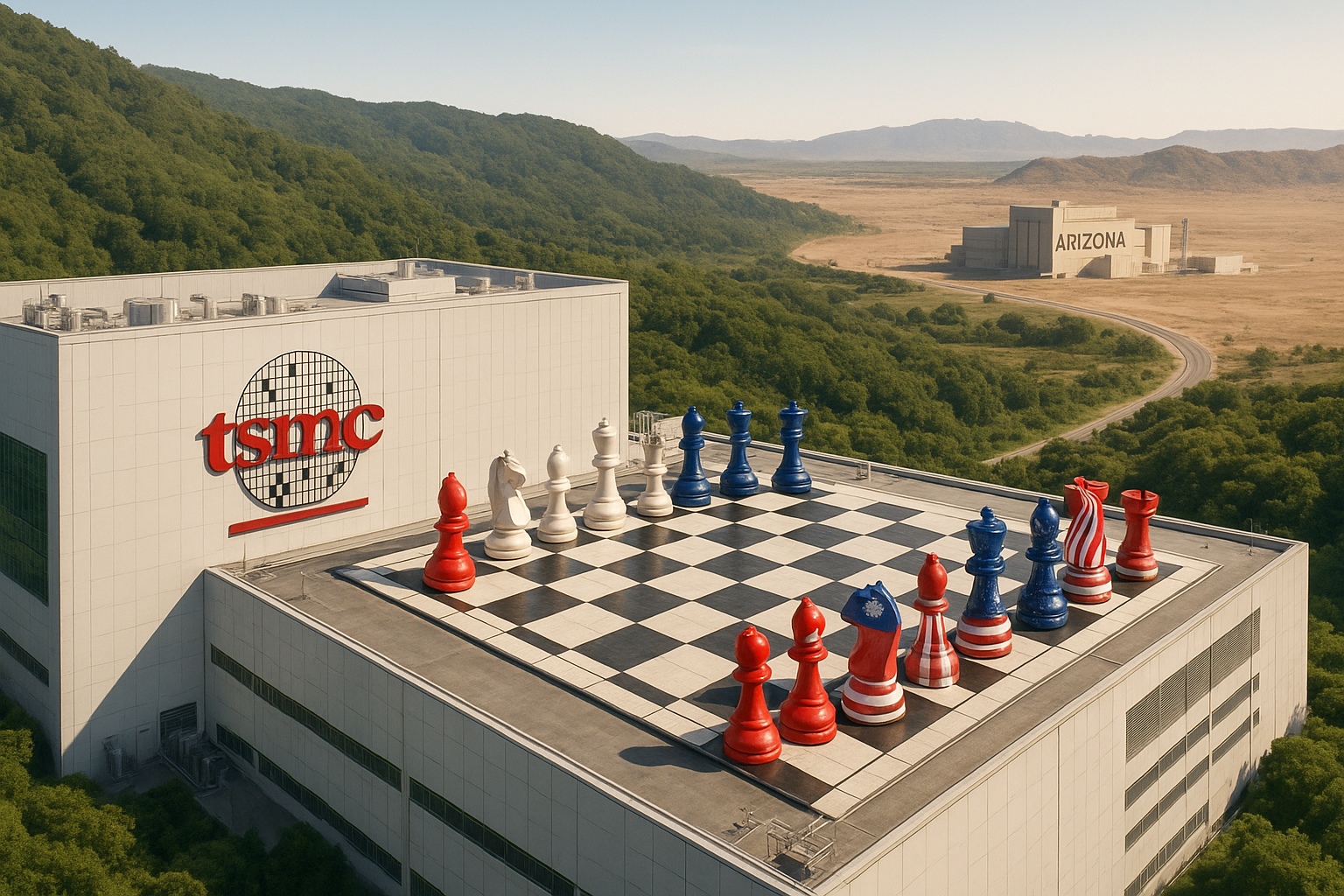Taiwan has just pulled off what might be the most polite rejection in semiconductor diplomacy. After US Commerce Secretary Howard Lutnick floated the idea of a "50-50 split" in chip production between Taiwan and the United States, Taiwan's response was essentially: "That's cute, but no."
Vice Premier Cheng Li-chiun, fresh from tariff negotiations with Washington, clarified that this ambitious 50-50 proposal never actually came up during official talks. Translation: "We heard your idea through the grapevine, and we're publicly shooting it down before it gains any traction."
Let's be clear about what's at stake. Taiwan Semiconductor Manufacturing Company (TSMC) isn't just any chipmaker—it's the crown jewel of the global semiconductor industry, producing roughly 90% of the world's most advanced chips. When your company makes the components that power everything from iPhones to fighter jets, you don't casually agree to ship half your production overseas.
The situation reminds me of those awkward salary negotiations where one party opens with an absurd lowball offer. The US essentially said, "How about we take half your most valuable industry?" and Taiwan responded by pretending they didn't even hear the question.
There's a fascinating game theory dynamic at work here. Taiwan knows that its semiconductor dominance is its greatest geopolitical insurance policy—what some analysts have called its "silicon shield." The more dependent the world remains on Taiwan's chip production, the more motivated other powers become in ensuring Taiwan's security and stability.
TSMC is indeed expanding in Arizona with a planned $65 billion investment, but that's a far cry from the 50-50 split Lutnick envisioned. The remaining $100 billion of TSMC's operations will stay firmly in Taiwan. It's like giving your overprotective friend just enough of your contact information to feel included, but not enough to actually reach you whenever they want.
The backdrop to all this, of course, is America's growing anxiety about supply chain vulnerabilities. The CHIPS Act wasn't subtitled "Please God Let Us Not Depend Entirely on a Small Island 100 Miles from China" but it might as well have been. Washington looked at the semiconductor supply chain during the pandemic and essentially had a collective panic attack.
But Taiwan has played this game masterfully. They've given enough concessions—TSMC's Arizona plants, diplomatic niceties, continued military cooperation—while fundamentally maintaining their position of strength. It's like watching a championship poker player who knows exactly which small pots to concede while protecting their stack.
What makes this particularly interesting is how it reveals the limitations of America's industrial policy. Despite bipartisan support for reshoring semiconductor production and billions in subsidies, the U.S. is discovering that you can't simply recreate overnight what Taiwan has built over decades—not just in factories, but in human capital, supplier ecosystems, and technical know-how.
I spoke with a semiconductor analyst last week who put it bluntly: "Americans think you can throw money at the problem and get Taiwan's semiconductor ecosystem. But it's like trying to recreate France's wine industry in Nevada. You can import the grapes and the equipment, but there's something in the soil and the air that you just can't replicate."
Taiwan's strategy also exposes the awkward dance of U.S.-Taiwan relations. America wants Taiwan's chips and Taiwan's security, but doesn't want to provoke China too directly. Taiwan wants America's security guarantees without surrendering its economic crown jewels. It's like a complex business partnership where neither party can fully state their true intentions in the contract.
In financial terms, Taiwan is maintaining its competitive moat while offering just enough concessions to keep its largest customer satisfied. TSMC's stock barely moved on this news, suggesting the market already understood what politicians are still figuring out: Taiwan isn't giving up its semiconductor advantage anytime soon.
The 50-50 proposal will likely join other ambitious but ultimately unrealized ideas in the history of U.S.-Taiwan relations. Meanwhile, the chips will continue to flow, mostly from Taiwan, and the delicate geopolitical balance will persist.
Things happen: - Intel announced another round of layoffs as its turnaround strategy continues to face headwinds. - Goldman Sachs analysts now predict three Fed rate cuts in 2024, down from previous forecasts. - Japanese investors have become net sellers of U.S. Treasuries for the first time since 2018, potentially signaling shifting global capital flows.
